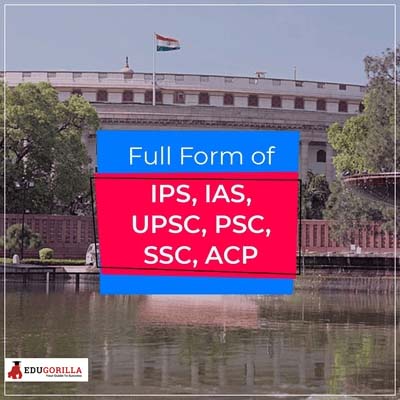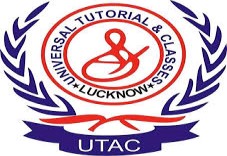Full Form of IPS
IPS or Indian Police Service is undoubtedly one of the most prestigious and honored civil services in India. It is one of the 3 All India Services of the Government of India. Other two services are IAS (Indian Administration Service) and IFS (Indian Foreign Service). The Ministry of Home Affairs acts as the cadre controlling authority for the IPS. An IPS officer carries out his or her responsibilities by safeguarding the public and detecting and preventing crime. He/she gives more importance to law and order and is also responsible for traffic control, accident prevention, and management.
Branches in IPS
IPS service is divided into various functional departments such as Crime Branch, Criminal Investigation Department (CID), Home Guards, and Traffic Bureau.
Educational Eligibility
To begin with the educational eligibility, the candidates must have a degree from recognized University in any discipline. Those candidates who are appearing in their final degree exam or with professional and technical qualifications recognized by the Government as equivalent to professional and technical degrees can also apply for the exam.
Update Regarding the EWS of the General Category
The UPSC has allotted around 89 number of seats for the candidates belonging to the Economically Weaker Section of the General Category. Out of these 89 seats, 18 could be those of IAS. IPS apart, this change to give way to the General EWS candidates will reflect on all the exams conducted by the UPSC.
Age Limit
- Firstly, for the candidates belonging to the General category-The maximum age for a candidate is 32 years.
- Secondly, for the OBC- The maximum age for a candidate is 35 years.
- Then for the SC/ST candidates- The maximum age for a candidate is 37 years.
- Next, the Physically Handicapped candidates- The maximum age for a candidate is 42,45 and 47 years for general, OBC, SC/ST respectively.
- Finally, for the Defense Service Personnel disabled during service- The maximum age for a candidate is 35 years
Relaxation in the Upper Age Limit
- Firstly, for the General Candidates (including those enjoying 10% reservation of the seats due to poor economic status)- no relaxation in upper age limit
- Secondly, for the SC/ST candidates- up to 5 years relaxation
- Then, for the OBC candidates- up to 3 years relaxation
- Next, for the Handicapped candidates (blind, deaf-mute and orthopedic) – up to 10 years relaxation
- And finally, for the J&K residents, Ex- Military Servicemen- up to 5 years of relaxation
Nationality
The candidate should be
- Firstly, a citizen of India or Nepal or Bhutan
- Or a Tibetan refugee (came to India before 1st January 1962 to be settled in India permanently)
- Or he/she may be a person of Indian origin who has migrated from Pakistan, Burma, Sri Lanka, East African countries of Kenya, Uganda, the United Republic of Tanzania, Zambia, Malawi, Zaire, Ethiopia and Vietnam with the intention of permanently settling in India.
Number of Attempts
- General- 6 attempts
- OBC- 9 attempts
- SC/ST- Unlimited number of attempts as they face no restriction regarding this
- Physically handicapped- 9 attempts for general and OBC, while unlimited for SC/ST
Physical Requirements
Height
- Male minimum 165 cm (160 cm for the males of Gurkha, Assamese, Kumaoni, Nagaland ethnicity) & ST (not the SC/OBC) – 160 cm
- Female minimum 150 cm (145 cm for the females of Gurkha, Assamese, Kumaoni, Nagaland ethnicity) & ST (not SC/ OBC) – 145 cm
Chest
- Male Minimum 84 cm with 5cm expansion.
- Female Minimum 79 cm with 5cm expansion.
Eyesight
- 6/6 or 6/9 distant vision for good eye.
- 6/12 or 6/9 for the worse eye.
- Near vision J 1 for good eye. J2 for worst eye.
Allowed Correction Types for Eyesight
Contact lens, spectacles, and refractive surgeries like ICL, Lasik, IOL, etc.
Examination
The examination consists of three parts:
Preliminary Exam
To begin with, the Preliminary Exam is the first level of the entire Civil Services Exam. It consists of the Civil Services Aptitude Test (CSAT), which again has two papers. They are, the General Studies paper 1, and General Studies paper 2. GS paper 1 covers topics ranging from History of India, Geography of the World and India to those of Indian Polity & Governance. It also covers Issues, and Solutions of Environment and General Science. Whereas, the topics of GS paper 2 are more of the type. They test the candidates’ mental and cognitive make-up for the job. It is a multiple-choice question exam that selects candidates for the next level of exam, that is, the mains exam. It must be remembered that the marks from prelims are not added while preparing for the result.
Main Exam
Once a candidate clears the prelims exam, he/she is liable to appear in the main exam. To begin with the structure, it offers a list of 9 subjects. Out of these 9 subjects, seven are compulsory and two are optional. A candidate can select any optional subject irrespective of his/her subject in which he/she holds a degree. Moreover, out of the 7 compulsory subjects, the first two dealing with a modern Indian language of the candidates’ choices and the English language are only qualifying in nature. Otherwise, the Mains exam overall is very comprehensive in nature and the candidate has to answer essay type questions. When the candidate clears it, he/she is called for a personal interview round.
Personal Interview
To begin with the PI, the duration of it is 45 mins. After the interview, consequently, the final selection list is prepared which is called the merit list. Meanwhile, a candidate qualifies for the interview on the basis of the total marks obtained in the main exam.
Apart from clearing the UPSC exam, a candidate can hope to become an IPS through an additional way. This is through clearing the state PSC exam. It generally takes 8-10 years to become an SP after clearing the state level exam.
Roles and responsibilities of an IPS Officer
An Indian Police Service Officer has to:
- Fulfil duties based on border responsibilities, in the areas of maintenance of public peace and order, crime prevention, investigation, and detection, collection of intelligence, VIP security, counter-terrorism, border policing, railway policing, tackling smuggling, drug trafficking, economic offences, corruption in public life, disaster management, enforcement of socio-economic legislation, bio-diversity and protection of environmental laws etc.
- Lead and command and share intelligence and other informational data with the Indian Intelligence Agencies like Research and Analysis Wing (R&AW), Intelligence Bureau (IB), Central Bureau of Investigation (CBI), Criminal Investigation Department (CID), Indian Federal Law Enforcement Agencies, Civil and Armed Police Forces in all the states and union territories.
- Lead and command the Central Armed Police Forces (CAPF) which include the Central Police Organizations (CPO) such as Border Security Force (BSF), Central Reserve Police Force (CRPF), Indo-Tibetan Border Police (ITBP), National Security Guard (NSG), Central Industrial Security Force (CISF), Vigilance Organizations and Indian Federal Law Enforcement Agencies.
- Interact and coordinate closely with the members of other All India Services and with the Indian Revenue Service. He/she is required to do the same with the Indian Armed Forces including a primary interaction and coordination with the Indian Army.
- Maintain peace among the public. It is one of the most important duties of IPS officers. They are also responsible for taking necessary decisions in their allotted state or district to maintain peace.
- Provide security to VIPs. In fact, for the protection of Chief ministers and Prime minister, IPS Officers are allotted frequent duties.
- To Inculcate integrity of the highest order, sensitivity to aspirations of people in a fast-changing social and economic milieu, respect for human rights, a broadly liberal perspective of law and justice and a high standard of professionalism.
Full Form of IAS
Formerly known as the Imperial Civil Service (ICS), Indian Administrative Service (IAS) is a Civil Services examination. It is the most prestigious administrative civil service and one of the toughest competitive exams in India. The subjects of Nepal are also eligible to appear and compete in this exam.
The IAS exam is conducted by the UPSC (Union Public Service Commission) for the recruitment of officers for the All India Administrative Civil Service. The qualifying officers are given key and strategic positions in the Union government and public-sector undertakings.
You may also like to read the tips for a smart Preparation strategy for IAS Exam and get study material.
Educational Qualification
Candidates who want to apply for the civil service exams should:
- Hold a bachelor’s degree from any of the recognized universities
- Have appeared for the qualifying examination and are awaiting results or those who are yet to appear for the qualifying examination are also eligible for the Preliminary Examination. They must produce proof of passing in the said exam along with an application for the Main Examination
- Have professional and technical qualifications that are recognized by the Government of India (or its equivalent as they then become eligible to apply)
- Have passed the final year of MBBS or any Medical Examination. Those who are yet to complete the internship can also appear for the Main Examination. However, they must submit a certificate from the concerned University from where they have passed the final professional medical examination
Age Limit for IAS Exam
2018-19 |
||
| Category | Upper Age Limit | No. of Attempts Allowed |
| General | 32 Years | 6 Attempts |
| Other Backwards Castes (OBC) | 32 Years with the relaxation of 03 years = 35 years | 9 Attempts |
| Scheduled Caste/Scheduled Tribe (SC/ST) | 32 Years with the relaxation of 05 Years = 37 years | Till the Upper Age limit |
| Physically disabled candidates (Blind, Deaf-Mute, Orthopedic) | 32 years with relaxation of 10 years. This, therefore, totals up to 42 years. | For the General and OBC Candidates= 09 attempts For SC/ST Candidates = Unlimited numbers of attempts allowed. |
| Jammu & Kashmir Domicile | General = 37 years, OBC = 40 Years, SC/ST = 42 Years, PH = 50 years | Up to the Upper Age limit |
| Disabled servicemen disabled from duty | General= 37 years OBC = 38 Years SC/ST = 40 Years | Up to the Upper Age limit |
You may also like to read Top 8 coaching institutes for UPSC
Also, Check out Answer Writing in UPSC
Full Form of UPSC
UPSC or Union Public Service Commission is India’s leading central government agency that conducts many top-level exams for the recruitment of officers and staff into various services of the central government. It is most known for the civil services exam it conducts every year. Though, additionally, it holds many other important exams.
You may also find Top 8 coaching institutes for UPSC worth reading!
Some of the exams conducted by UPSC are:
Civil Services Examination (CSE)
This exam recruits officers for the Indian Civil Services like IAS, IPS, IFS, IRS, IDES, IIS, etc.
Eligibility: For the CSE, the candidate must at least be a graduate to be eligible to take the exam.
Read Answer Writing in UPSC to get a fair idea about UPSC mains answer writing.
Engineering Services Examination (ESE)
This exam recruits officers into the Indian Engineering Service (IES). An IES officer works in technical aspects of the roads, railways, manufacturing, power, etc.
Eligibility: He/she must be an engineering graduate to qualify for the exam.
Combined Defense Services Examination (CDSE)
This exam is conducted to recruit people into the Indian Military Academy, Indian Naval Academy, Indian Air Force Academy and the Officers Training Academy. It is held twice a year.
Eligibility: Only unmarried graduates can take the exam.
National Defense Academy Examination (NDA)
This exam is conducted by the UPSC twice a year for those candidates who want to enter the National Defense Academy.
Eligibility: The candidate must have passed the intermediate exam and must be unmarried.
Combined Medical Services Examination (CMSE)
This exam is conducted for recruitment of Medical Officers into the various services like in Indian Ordnance Factories and the Indian Railways under the Indian government.
Eligibility: The candidate must be a qualified doctor.
Indian Economic Service and Indian Statistical Service Examination (IES & ISS)
This exam recruits Grade IV officers into the Indian Economic and Statistical Services.
Indian Forest Services Exam (IFSE)
This exam is for recruitment as Indian Forest Service Officers.
Special Class Railway Apprentices Exam (SCRA)
This exam is conducted for entry into the Indian Railways Institute of Mechanical and Electrical Engineering, Jamalpur for an undergraduate course in mechanical engineering.
Combined Geologist & Geo-Scientist Exam
This exam is conducted to recruit candidates into the Geological Survey of India as geologists, geophysicists, and chemists. This exam is also for hydrogeologist posts in the Central Ground Water Board.
Central Armed Police Forces Exam (CAPF)
This exam is conducted for recruiting Assistant Commandants in the Central Armed Police Forces.
Learn how to make a smart Preparation strategy for IAS Exam!
Full Form of PSC
PCS or Public Service Commission was established under Article 315 to 323 of the Constitution of India. It is a central authorized agency to conduct examinations to select candidates for direct recruitment to various categories of posts. These posts lie vacant under the Government of India.
Public Service Commission (UPSC & SPSC)
The civil servants play an important role in the successful administration of state at different levels. So, their recruitment, training, emoluments, conditions of service, promotion policies, etc. assume importance. For an impartial consideration of these matters relating to civil servants, an independent and expert authority is required. This authority is known as the institution of the Public Service Commission. One of the most important features of our Constitution is the inclusion of the Public Service Commission at both Union and State levels in the Constitution.
While UPSC and SPSC are constitutional bodies, a joint public service commission is created by an Act of Parliament.
What does the Law say about PSC?
Articles 315 to 323 in Part XIV of the Constitution of India provides for the establishment of Public Service Commission for the Union and a Public Service Commission for each State. The same set of Articles (i.e., 315 to 323 in Part XIV) of the Constitution also deal with the composition, appointment, and removal of members, power and functions and independence of a Public Service Commission.
Union Public Service Commission
It was set up to conduct examinations for recruitment to all India services and higher Central services and to advise the President on disciplinary matters.
State Public Service Commission
It was set up in every state to conduct examinations for recruitment to state services and to advise the governor on disciplinary matters.
Salaries, Allowances, and Pensions Payable for Members of Public Service Commissions
As per the constitution of India, ‘’The expenses of the Union or a State Public Service Commission, including any salaries, allowances and pensions payable to or in respect of the members or staff of the Commission, shall be charged on the Consolidated Fund of India or, as the case may be, the Consolidated Fund of the State.’’
Public Service Commissions in India
- Union Public Service Commission
- Andhra Pradesh Public Service Commission
- Arunachal Pradesh Public Service Commission
- Assam Public Service Commission
- Bihar Public Service Commission
- Chhattisgarh Public Service Commission
- Goa Public Service Commission
- Gujarat Public Service Commission
- Haryana Public Service Commission
- Himachal Pradesh Public Service Commission
- Jammu & Kashmir Public Service Commission
- Jharkhand Public Service Commission
- Karnataka Public Service Commission
- Kerala Public Service Commission
- Madhya Pradesh Public Service Commission
- Maharashtra Public Service Commission
- Manipur Public Service Commission
- Meghalaya Public Service Commission
- Mizoram Public Service Commission
- Nagaland Public Service Commission
- Odisha Public Service Commission
- Public Service Commission, West Bengal
- Punjab Public Service Commission
- Rajasthan Public Service Commission
- Sikkim Public Service Commission
- Tamil Nadu Public Service Commission
- Telangana state Public Service Commission
- Tripura Public Service Commission
- Uttar Pradesh Public Service Commission
- Uttarakhand Public Service Commission
Full Form of SSC
SSC or Staff Selection Commission is a body which recruits the staff for various posts. The SSC carries this recruitment exercise for the various Ministries and Departments of the Government of India. It also recruits for subordinates’ offices. SSC MTS or ‘Staff Selection Commission Multi-Tasking Staff’ is an important workforce for the daily operations of cleaning, washing, etc. that are related to different departments of the government. The employees are hired in CCAS cadre (Central Civil Accounts Service) of the Group ‘C.’ They are offered promotions within this group, based on seniority.
Writing a Good Essay for SSC MTS
Essay writing is the soul of the paper. You have to keep in mind the following points to come fully-prepared in the exam:
- The introductory paragraph of the essay sets the most important impact on a reader’s mind. Hence, always choose a stimulating topic.
- Be very creative in the introductory paragraph. Try to use quotations by famous writers. Not only will it sail you through the topic easily but also make a good impression upon the paper checker.
- Follow the proverb that says, ‘the first impression is the last impression.’ Your introduction or the opening lines should be impressive and create some influence on a reader’s mind. Your introduction of the essay should have the central idea but do not fully explain it.
The Format of SSC MTS Essay Writing
Try to divide all your viewpoints, arguments or opinions into paragraphs with continuity. It is advisable to divide your essay into 3 paragraphs, but it entirely depends on how complex the topic is.
- 1st Paragraph – It should include the strongest points.
- 2nd Paragraph– It should include all less strong points.
- 3rd Paragraph– It should include the weakest arguments.
Note: Do not start writing without having an exact plan. Don’t beat around the bush and keep it to the topic.
Conclusion
- Finalize all your opinions in the last paragraph.
- Bring in your central idea back. This way you will let your reader know you are wrapping up.
Important Tips on Essay Writing – SSC MTS Descriptive Test 2018
- Just read! This might sound cliché but it is exactly what is going to help.
- Enhance your vocabulary. This will save you from making unnecessary long sentences.
- Make writing a daily part of your life and gradually writing an essay or a letter will not be a task for you.
SSC MTS Cut-Off
Here is the cut-off for multi-tasking (non-technical) staff examination, 2016 for candidates qualified in Paper-I for appearing in Paper-II.
| Category | Official Cut-off |
| SC (Candidates available-12,210) | 100.50 |
| ST (Candidates available-10,928) | 87.00 |
| OBC (Candidates available-45,420) | 101.00 |
| ExS (Candidates available-2,704) | 49.50 |
| OH (Candidates available-2,386) | 93.00 |
| HH (Candidates available-916) | 49.50 |
| VH (Candidates available-1,191) | 76.00 |
| UR (Candidates available-83,427) | 110.50 |
Note: The total no. of candidates who appeared in the exam-1,59,182
SSC MTS Salary
Multi-Tasking Staff is a general central service group ‘C’ non-gazetted, which is a non-ministerial post that falls under Payband-1 (Rs.5200 – 20200) + Grade Pay Rs.1800. However, the take-home salary of MTS ranges between Rs. 18,000 – 22,000 /month (approximately). The salary could also vary slightly based on location, allowances, etc.
The SSC MTS Grade Pay increases with every Promotion:
- First Promotion: Rs. 1900/- after 3 years of service.
- Second Promotion: Rs. 2000/- after 3 years of service.
- Third Promotion: Rs. 2400/- after 5 years of service.
- And so on up to Rs.5400/-
SSC MTS Work Profile
The job of Multitasking staff is sometimes challenging and needs hard work with timely results.
Designation
Peon, Dafataary, Jamadar, Farash, Chowkidar (Gate-keeper), Safaiwala, Mali, Junior Gestetner Operator, etc.
Nature of Job
Candidates have to meet the following responsibilities and duties that come with the SSC MTS Jobs:
- General cleanliness and upkeep of the Section or Unit
- Cleaning of rooms and dusting of furniture etc.
- Carrying of important files and papers.
- Physical maintenance of records of the Section.
- Photocopying, sending of fax, etc.
- Other non-clerical work in the Section or Unit.
- Assisting in routine office work like the diary, dispatch, etc.
- Assisting on the computer.
- Delivering of Daak (outside the building).
- Watch and ward duties.
- Opening and closing of rooms.
- Cleaning of the building, fixtures, etc.
- Work related to his ITI qualifications, if it exists.
- Driving of vehicles, if in possession of a valid driving license.
- Upkeep of lawns, parks, potted plants, etc.
- Any other work assigned by the superior authority.
Full Form of ACP
ACP or Assistant Commissioner of Police is one of the higher ranks in the Indian Police Services. Assistant Commissioner of Police and Deputy Superintendent of Police, both work at the same rank in the police. Both the designations get 3 stars to wear on their Uniforms.
The two ways of acquiring the position or rank of an ACP are:
- Promotion from the state police cadre after successful completion of 15-20 years of service
- Direct selection through UPSC (designated as IPS)
In both ways, the Minimum qualification is graduation in any chosen subject.
You Might Want To Read: Know more about the best MBA colleges in the world and Why MBA Online is better.
You Might Want To Read:
Ugc Net Education Question Paper 2 2005, Ugc Net Chinese Mock Test Paper 33, Cat Question Papers Solutions 1998, Prime Hyderabad, General English Question Paper 4 2012, Baba Farid University Anatomy Question Paper 3 2008, Economics, Whistling Woods International Institute, Manganese Ore India Limited Moil Limited Test Series, Kurushetra University B Sc Zoology Mock Test Paper 7
Leave your vote
This post was created with our nice and easy submission form. Create your post!









